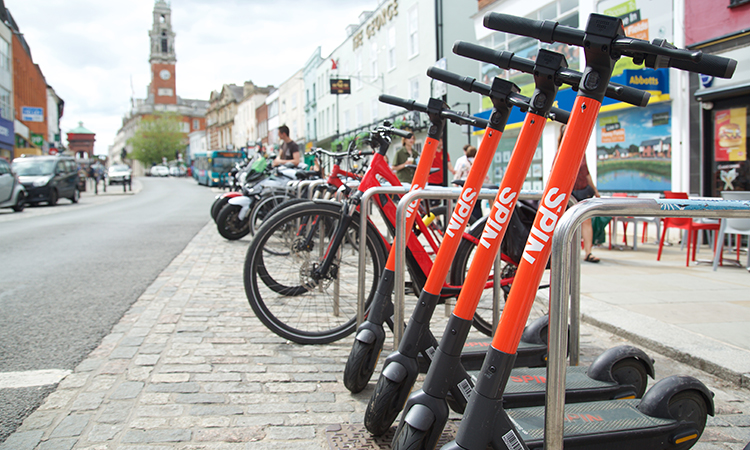In recent years, urban transportation has witnessed a significant shift towards more sustainable and eco-friendly options.
One of the most exciting developments in this domain is the emergence of scooter-enhanced electric bicycles, a novel blend of two popular micro-mobility solutions.
This innovative combination offers urban commuters a convenient, cost-effective, and eco-conscious mode of transportation.
In this article, we will explore the concept of scooter-enhanced electric bicycles, their advantages, and their potential impact on urban mobility.
The Scooter-Enhanced Electric Bicycle: What Is It?
Scooter-enhanced electric bicycles, often referred to as e-bikes with integrated scooters, are a fusion of traditional electric bicycles and electric scooters.
These vehicles typically consist of a bicycle frame equipped with an electric motor and battery, similar to conventional e-bikes.
However, they come with an added twist—a foldable or detachable scooter attachment.
This scooter element offers riders an alternative mode of transportation for short-distance trips or when navigating through crowded urban streets.
Advantages of Scooter-Enhanced Electric Bicycles
- Versatility: One of the key benefits of these hybrid vehicles is their versatility. Riders can switch between biking and scooting modes seamlessly, adapting to different urban environments. This adaptability makes them ideal for cities with mixed transportation infrastructure.
- Last-Mile Connectivity: Scooter-enhanced electric bicycles are well-suited for providing last-mile connectivity, bridging the gap between public transportation hubs and final destinations. Commuters can easily fold up the scooter attachment and stow it in a compact space, such as under a desk or in a corner of a subway car.
- Reduced Environmental Impact: Like traditional electric bicycles, these hybrids are eco-friendly. They produce zero emissions, helping reduce air pollution and greenhouse gas emissions. By encouraging more people to opt for sustainable transportation options, cities can work towards a cleaner, greener future.
- Health and Fitness Benefits: Riding these vehicles offers health and fitness benefits similar to regular cycling. Commuters can choose to pedal or use the electric assist, providing an excellent low-impact workout while commuting.
- Cost-Effective: In the long run, scooter-enhanced electric bicycles can be cost-effective compared to owning a car or relying on ridesharing services. They have lower operating costs, requiring only occasional battery charging, and may reduce commuting expenses significantly.
Impact on Urban Mobility
The introduction of scooter-enhanced electric bicycles has the potential to revolutionize urban mobility in several ways:
- Reduced Traffic Congestion: By encouraging more people to switch to these eco-friendly alternatives, cities can potentially reduce traffic congestion, making roads safer and less congested for all commuters.
- Decreased Carbon Footprint: The adoption of these vehicles can contribute to lower carbon emissions, aligning with urban sustainability goals and reducing the overall environmental impact of transportation.
- Improved Accessibility: These hybrids can make urban transportation more accessible to a broader demographic, including those who might find regular cycling challenging or who need assistance for mobility.
Conclusion
Scooter-enhanced electric bicycles represent a promising solution for addressing urban mobility challenges.
Their versatility, environmental benefits, and impact on reducing traffic congestion make them a viable option for commuters in densely populated cities.
As cities continue to invest in sustainable transportation infrastructure, these innovative vehicles may play a crucial role in shaping the future of urban mobility, offering a greener and more efficient way for people to navigate the bustling streets of our modern cities.

